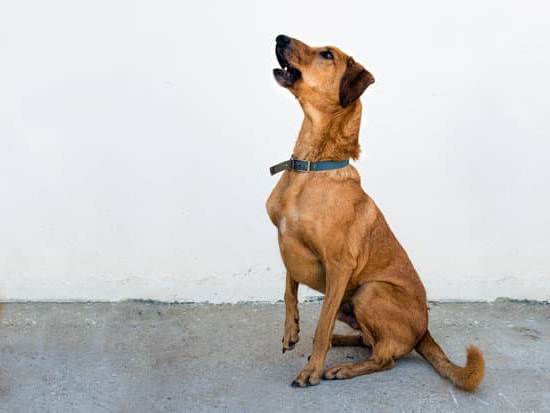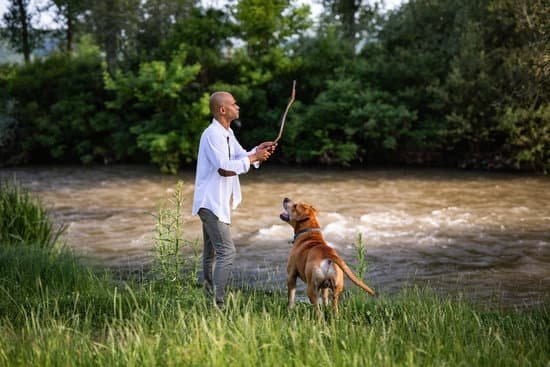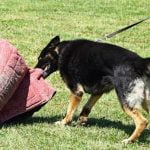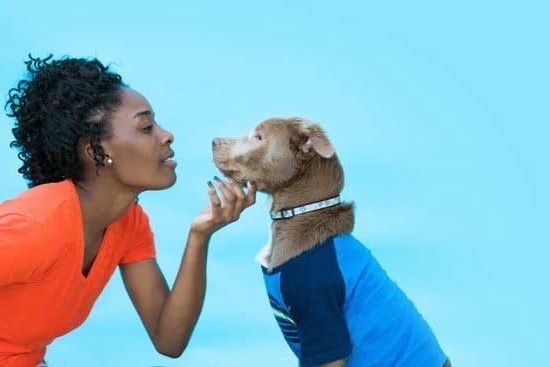Are you looking to learn how to train rabbit dogs? Rabbit dogs, also known as hare hounds, are specifically bred and trained for hunting rabbits. In this article, we will discuss the purpose of rabbit dogs in hunting and companionship, as well as provide insights on choosing the right breed, basic and advanced training techniques, obedience training, equipment and tools needed for training, common mistakes to avoid, and tips for maintaining a happy and healthy rabbit dog.
Rabbit dogs play an important role in assisting hunters in catching rabbits by tracking their scent and following their trail. Beyond hunting, these dogs also make wonderful companions for individuals or families who enjoy an active lifestyle. Understanding the purpose of rabbit dogs is crucial in order to provide them with proper care and training that aligns with their natural instincts and abilities.
In the following sections, we will delve into the characteristics of rabbit dogs that make them suitable for hunting purposes. We will also explore various training techniques for both basic obedience and advanced tracking skills.
Additionally, we will discuss the importance of obedience training for rabbit dogs to ensure they can be well-behaved companions whether in the field or at home. So if you’re interested in learning effective ways to train your rabbit dog for hunting or simply want to enhance their companionship skills, keep reading.
Choosing the Right Breed
When it comes to choosing the right breed of dog for rabbit hunting, it’s important to consider certain characteristics that make a particular breed well-suited for this type of activity. Rabbit dogs need to possess specific traits and abilities that are essential for successful rabbit hunting. Here are some key characteristics to look for when selecting a breed for rabbit hunting:
- Size: Rabbit dogs should be medium-sized, agile, and have enough stamina to keep up with the fast-paced chase of rabbits.
- Instinct: It’s crucial that the chosen breed has a strong prey drive and natural hunting instincts. They should be eager to track and pursue rabbits on their own.
- Scenting Abilities: A keen sense of smell is vital for rabbit dogs, as they rely on their ability to pick up and follow scent trails left by rabbits.
- Temperament: Rabbit dogs should be intelligent, trainable, and have a good disposition. They will often work closely with their human handlers, so having a cooperative nature is beneficial.
Common Breeds Used as Rabbit Dogs
- Beagle: Beagles are known for their excellent tracking and scenting abilities, making them popular choices for rabbit hunting. They are energetic, determined, and have a friendly demeanor.
- Basset Hound: Basset Hounds have a strong sense of smell and a calm disposition, which makes them well-suited for tracking rabbits in various terrains.
- Redbone Coonhound: These hounds are known for their endurance and loud baying voice, which helps in alerting hunters when they have located a rabbit’s trail.
Before deciding on a specific breed, it’s important to research and understand the unique characteristics of each breed to ensure compatibility with your hunting style and preferences. Once you’ve selected the right breed for your needs, you can then focus on understanding how to train rabbit dogs effectively to maximize their potential in the field.
Basic Training Techniques for Rabbit Dogs
Training your rabbit dog is essential to ensure that it performs well in the field and behaves properly at home. There are several basic training techniques that you should focus on when starting to train your rabbit dog. Here are some important techniques to consider:
- Obedience Training: Teaching your rabbit dog basic commands such as sit, stay, come, and heel is crucial for its safety and behavior. Use positive reinforcement techniques such as treats and praise to encourage good behavior.
- Socialization: Expose your rabbit dog to different environments, people, and other animals from a young age to prevent fear or aggression issues later on. This will also help your dog feel comfortable in various hunting situations.
- Leash Training: Getting your rabbit dog used to walking on a leash without pulling or tugging is important for both hunting and daily walks. Start with short walks and gradually increase the distance while rewarding good leash behavior.
By focusing on these basic training techniques, you can lay a solid foundation for more advanced training in the future.
Advanced Training for Rabbit Dogs: Tracking and Scent Training
Once your rabbit dog has mastered the basic training techniques, you can start introducing more advanced skills such as tracking and scent training. This will enhance their hunting abilities and make them more effective in the field.
Advanced Training for Rabbit Dogs
Understanding Tracking and Scent Training
Tracking and scent training are essential skills for rabbit dogs, as they rely heavily on their sense of smell to track and locate rabbits. This type of training involves teaching the dog to follow a scent trail left by a rabbit, as well as how to distinguish between different scents in order to locate the target. Understanding the importance of tracking and scent training will help in developing a well-rounded hunting dog.
Techniques for Tracking and Scent Training
One effective technique for tracking and scent training is to start with basic scent exercises. This can include hiding treats or toys with rabbit scent and having the dog locate them using their sense of smell.
Gradually, you can progress to more advanced exercises such as introducing distractions into the scent trail or practicing tracking in different environments. It’s important to be patient and consistent when training rabbit dogs for tracking and scent work, as it can take time for them to develop these skills.
Utilizing Tools for Tracking and Scent Training
There are various tools that can aid in tracking and scent training for rabbit dogs, such as scented training aids, tracking harnesses, or even electronic tracking collars. These tools can help reinforce the dog’s natural abilities and make the training process more effective.
However, it’s important to remember that these tools should be used in conjunction with proper training techniques, not as a substitute for them. By utilizing the right tools and techniques, you can effectively train your rabbit dog to become an exceptional tracker and hunter.
The Importance of Obedience Training for Rabbit Dogs
Obedience training is essential for rabbit dogs, as it ensures they are well-behaved and responsive, not only in the field but also at home. A well-trained rabbit dog will be able to follow commands quickly and effectively, making the hunting experience more enjoyable for both the dog and the owner. Additionally, obedience training helps to keep rabbit dogs safe by teaching them boundaries and limits, preventing them from running off or getting into dangerous situations.
One of the most important aspects of obedience training for rabbit dogs is teaching them basic commands such as sit, stay, come, and heel. These commands are not only useful during hunting trips but also in everyday life. By establishing a clear line of communication through obedience training, owners can effectively guide and control their rabbit dogs whether they are out in the field or simply going for a walk.
In addition to basic commands, it’s important to socialize rabbit dogs with other animals and people. This helps to prevent aggression and fearfulness in various situations. Socialization can be incorporated into obedience training by exposing the dog to different environments and introducing them to new experiences in a positive way.
Ultimately, obedience training not only ensures that rabbit dogs are well-behaved when hunting but also enhances their overall quality of life as beloved companions. If you want to learn how to train rabbit dogs effectively then consider seeking professional help from experienced trainers who specialize in working with hunting breeds like rabbit dogs.
Equipment and Tools for Training Rabbit Dogs
When it comes to training rabbit dogs, having the right equipment and tools is essential for a successful training program. From collars to leashes, there are several items that can aid in the training process and ensure that your rabbit dog is well-prepared for hunting and companionship.
Collars and Leashes
One of the most important pieces of equipment for training rabbit dogs is a reliable collar and leash. For younger dogs or those just starting their training, a basic buckle collar or harness is suitable. As they progress in their training, consider using a tracking collar to help monitor their movements during hunts.
Training Dummies and Scent Bags
Training dummies and scent bags are valuable tools for teaching rabbit dogs to track scents and locate prey. These items can be used during both basic and advanced training to simulate hunting scenarios in a controlled environment. Scent bags containing the scent of rabbits can be particularly helpful in familiarizing dogs with the target scent.
Whistles and Commands
Using whistles and commands is another essential aspect of training rabbit dogs. A whistle can be used to signal the start of a hunt or recall your dog if they stray too far. Commands like “sit,” “stay,” and “come” are fundamental for obedience training, ensuring that your rabbit dog listens and responds appropriately in various situations.
Overall, having the right equipment and tools is crucial in successfully training rabbit dogs. Whether it’s collars, leashes, dummies, scent bags, or whistles, each item serves a specific purpose in guiding your dog through its training journey. By utilizing these tools effectively, you can help your rabbit dog develop the skills needed for hunting while also ensuring their safety and well-being.
Common Mistakes to Avoid When Training Rabbit Dogs
When training rabbit dogs, it’s essential to be aware of common mistakes that can hinder their progress. One mistake to avoid is not starting training early enough. It’s crucial to begin training your rabbit dog as soon as possible, ideally around 8 weeks of age. Starting early will help establish good habits and behaviors from the start.
Another common mistake is using punishment-based training methods. Rabbit dogs respond best to positive reinforcement, such as treats, praise, and play. Punishment-based techniques can lead to fear and anxiety in rabbit dogs, ultimately hindering their training progress.
Lastly, a mistake to avoid is neglecting socialization. Rabbit dogs need to be exposed to different environments, people, and animals from a young age to develop good social skills. This exposure helps prevent behavioral problems and ensures that your rabbit dog is well-adjusted.
| Mistake | Impact |
|---|---|
| Not starting training early | Establishing bad habits and behaviors |
| Using punishment-based methods | Fear and anxiety in dog |
| Neglecting socialization | Behavioral problems and lack of adaptability |
By avoiding these common mistakes, you can set your rabbit dog up for success in their training. With patience, consistency, and positive reinforcement, you can train your rabbit dog to be a skilled hunting companion or a beloved family pet.
Tips for Maintaining a Happy and Healthy Rabbit Dog
Raising a happy and healthy rabbit dog involves more than just proper training. It also means ensuring that they are getting the right nutrition, exercise, and veterinary care. To maintain the health and happiness of your rabbit dog, it’s important to provide them with a balanced diet that meets their nutritional needs.
Additionally, regular exercise is crucial for their physical and mental well-being. Taking your rabbit dog for walks, allowing them to run in a secure area, and engaging them in interactive play can help prevent boredom and destructive behaviors.
Regular veterinary check-ups are essential for maintaining the health of your rabbit dog. This includes vaccinations, dental care, parasite prevention, and overall wellness exams. Grooming is also an important aspect of keeping your rabbit dog happy and healthy. Regular brushing, nail trimming, and ear cleaning can help prevent skin issues and infections.
Another key factor in maintaining a happy and healthy rabbit dog is providing them with plenty of mental stimulation. Engage your rabbit dog in activities that challenge their problem-solving skills, such as puzzle toys or scent games. Mental stimulation not only prevents boredom but also strengthens the bond between you and your furry companion.
In addition to these factors, it’s important to create a safe environment for your rabbit dog at home. This includes providing them with a comfortable bed, safe toys to play with, and a secure outdoor area if applicable. By addressing all aspects of their well-being, you can ensure that your rabbit dog lives a long, happy life as your loyal hunting companion or beloved pet.
| Aspect | Recommendation |
|---|---|
| Nutrition | Provide a balanced diet tailored to their nutritional needs |
| Exercise | Engage in regular physical activity such as walks and interactive play |
| Veterinary Care | Schedule regular check-ups for vaccinations, dental care, parasite prevention, grooming etc. |
Conclusion
In conclusion, training rabbit dogs can be a rewarding experience for both hunters and dog owners. Whether you are training these dogs for hunting purposes or as beloved companions, the effort put into their training can lead to a strong and fulfilling bond between you and your furry friend. Understanding the purpose of rabbit dogs and choosing the right breed with the appropriate characteristics are essential steps in setting the foundation for successful training.
Basic training techniques such as teaching obedience commands and leash manners are crucial for any rabbit dog. Furthermore, advanced training in tracking and scent work can hone their natural hunting instincts and make them valuable assets during hunting trips. It is important to note that while training rabbit dogs can be challenging at times, it is ultimately a rewarding journey that strengthens the partnership between you and your dog.
When it comes to maintaining a happy and healthy rabbit dog, regular exercise, proper nutrition, and regular veterinary check-ups are key. Additionally, creating a stimulating environment that allows them to use their natural abilities is important for their overall well-being.
By following the tips provided in this article and putting in consistent effort, anyone can successfully train rabbit dogs for both hunting and companionship. If you want to discover more about how to train rabbit dogs then this process must be quite practical for developing skills that suit the attributes of these special breeds.
Frequently Asked Questions
How Long Does It Take to Train a Rabbit Dog?
Training a rabbit dog can take several months to several years, depending on the breed and the dog’s individual characteristics. It requires consistent training, socialization, and exposure to rabbits to develop the necessary skills.
How Do You Train a Dog With a Rabbit?
Training a dog with a rabbit involves using positive reinforcement techniques to associate the rabbit’s scent with rewards. Start by introducing them to the rabbit’s scent gradually, then progress to live encounters under controlled conditions while rewarding calm behavior.
What Is the Best Dog for Rabbit Hunting?
The best dog for rabbit hunting is often considered to be the Beagle. Their keen sense of smell, high energy levels, and ability to work in packs make them well-suited for tracking and flushing out rabbits. Other breeds like Basset Hounds and Dachshunds are also popular choices for rabbit hunting due to their similar traits.

Welcome to the blog! I am a professional dog trainer and have been working with dogs for many years. In this blog, I will be discussing various topics related to dog training, including tips, tricks, and advice. I hope you find this information helpful and informative. Thanks for reading!





